I feel as though there’s more room for memory, resonance, a greater palette of emotions that we can draw on when we write or see a play after a lifetime of taking a seat and waiting for the lights to go down. The colors are richer, deeper, the music more complex (and if you wore earplugs, you still have your hearing).
When I was beginning in the theater, I’d go see a play as many times as I could (the only option in a town with a more limited theater scene than NYC). If I could get hold of a copy of a script, I’d read it and practically commit it to memory. Before I realized there were such things as writing workshops, I tried to take apart the scripts and see how they worked and figure out why the artist chose to do it just that way.
All of this was part of my coming out…as an artist.
I’m starting this on a bus heading down the Jersey Turnpike (on Pride Sunday, no less) on my way to see the last performance of a run of my play, “Grieving for Genevieve,” at the Venus Theater in Laurel, MD. The last time I missed a Pride Sunday in NYC was to see a reading of my play, “Grieving for Genevieve” in Chicago.
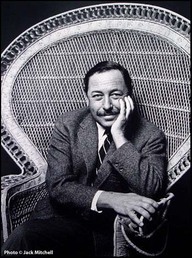
The sense memories came back strong last Monday when I went to see Tennessee Williams’s “The Two Character Play.” I’d been hoping to see it, both because it’s rarely been revived, as well as wanting to see Amanda Plummer onstage again.
The first time I saw Plummer’s work was in “Agnes of God,” on Broadway, with her, Elizabeth Ashley and Geraldine Page. (I’ve written about that before...it was a “come to Jesus” moment). Even though I hadn’t seen a lot, I knew enough to realize that I was in the presence of three great actresses. Leafing through the playbill at “The Two Character Play,” I realized I’ve seen Amanda Plummer in most of her New York City appearances, from Glass Menagerie to Pygmalion.
I think one of the reasons that at the end of his life, when Tennessee Williams went out of fashion, when it was okay for the intelligentsia to make fun of him and his work, to dismiss it, is at least partially because of a level of homophobia that was acceptable back then, and even now can be heard as an undertone if you listen carefully. If you read Christopher Bram’s wonderful book “Eminent Outlaws,” he traces a similar trajectory in Edward Albee’s reputation, in the reception of “Virginia Woolf” both before and after it was widely known the author was a gay man.
Frank Rich can write elegiacally about his surrogate gay parent in New York magazine, but fairies were always fair game for theater critics. So it’s good to see him having a renaissance in that people are going back to the work and saying: hey, this is worth bringing back. These are things people need to hear again, and know again.
When the play began, I heard Tennessee’s voice, strong & rich, and in different ways than in his earlier plays (probably the biggest critique that any writer faces: that This One is not The Same as the Last One). Along with his unique voice and ideas, I saw shadows of Beckett & Ionesco, and the artist wrestling with himself. As always, there was the shadow of his sister. We all have something we try to write, and write out, and there it is.
I saw how Williams’s language has informed so much of American theater. Without Williams creating a voice in American theater, you’ve got…Miller (I will qualify this by saying “Post WWII mainstream theater in America”). Which is a much more judgmental place. I also realized the influence that Amanda Plummer has had on so many actors…they don’t have her mercurial quality, the way her voice does things, but they have taken cues from her unique style & energy. Brad Dourif more than held his own as her brother/foil/director/scene partner. I read Hilton Als’s critique in the New Yorker, and he felt that Dourif and the direction were not up to par with Plummer & Williams. I disagree, at least about Dourif (the lighting was too dark for me). Though I would like to see David Hyde Pierce take a shot at that part. (I’d also like to see DHP’s Cyrano, but don’t let me get sidetracked).
We didn’t go out for drinks after because it was a Monday and we were really tired, and I’m just as glad, because I wanted to have my mind to myself on the way home. Think about certain moves and gestures, and phrases, and even costume pieces and all the things Williams was trying to say as he wrote and rewrote and rewrote. I realized the other day that since Williams was born in 1911, even if he hadn’t left us so suddenly and freakishly in ’83, he probably still wouldn’t be alive today. Well, he’d be 102.

But on that particular Monday a week ago, I was thinking about how satisfying the Williams play was in one way, and how satisfying a piece I’d seen two nights before had been in a completely different way.
I’m talking about “Manna-Hata,” by Barry Rowell, which was presented by Peculiar Works Project in the upper regions of the James A. Farley Post Office. They had me at “partially gutted & abandoned upper floors of an old building.” And in the soon-to-be-destroyed/transformed space (it’s going to be a train station!) a company of 20 actors performed a very personal & deeply-felt history of the island that is still the center of the universe for many. (I, of course, moved to a borough in 1994).
Still, it’s where I came when I came here, for things like theater and brilliant, crazy people who will put on a site-specific show in a marble building and say: hell yes, we can do shit like this in 2013 in what is either the end days of the American Republic, or a time when something new (which could be good or bad) is about to happen. I mean, even if you’re in the End Days, are you just supposed to wait for something bad to happen, or are you supposed to comment on what you see, and make people think a little bit, or laugh, or cry or walk while sweating past frosted glass doors and really nice sconces and molding?
It’s been 300-plus years of power brokers and the people they want to break, businessmen who wipe out populations of natives, and crowds and mobs and riots where oppressed people get killed, and kill each other. And somewhere in there, little holes & corners where people drink and dream and write poems and plays. How can you not be thrilled all over again when Everett Quinton dances up and down a hall, wrapping peoples’ wrists in “caution” tape, Walt Whitman leads you through the miasma of history, and there’s Jane Jacobs singing, and Shirley Chisholm running for president, and a Lenni Lenape Indian reminding us who was there before before before.
As long as we have people that smart and irreverent both fictional and real, I’ll still bet on us, despite the odds.
And, of course, there are people who will find a way to produce a Tennessee Williams play that closed in a few days on Broadway in the 1970s and convince one of our great actors to come back to Manhattan and torment/comfort her brother/playwright to our edification and delight and soul’s satisfaction.
The train is leaving Baltimore now.

While I often bitch about the class system in American theater, I think it took someone with a similar background to mine, as in, having attended the same school, knowing the neighborhoods I was writing about, who the people were in the family I created, who is also a serious, rigorous artist, to create the production that I found so satisfying.
In Deb Randall I found a sister (I have 3 blood sisters, but there’s always room for another sister of the soul). She’s doing all the stuff I was just ranting about in her own backyard. I got out of there and pontificate from NYC. She lives in Laurel and has made art there, producing 44 new plays. She’s certainly put in the work, and the time, and paid the price. And now she gets to call the shots, which include putting on a difficult, dark, funny play with four very loud women in her space, and literally taking the lead in getting it done.
It seems to have been raining all spring. Dark clouds are always on the horizon. And what can we do but point out the obvious and if we are fortunate enough in these parlous times to actually have a job and a place to live, to throw our support, whatever we have, to someone with a good idea or a sense of justice, or march in a parade and say “I am here” or maybe get on another bus and do something sensible like register people to vote.
My knees aren’t what they used to be (though I was never all that fast), and I can’t really close down bars anymore (except on some nights), but I’d like to think that my vision hasn’t faded. In fact, sometimes it’s kind of sharp.

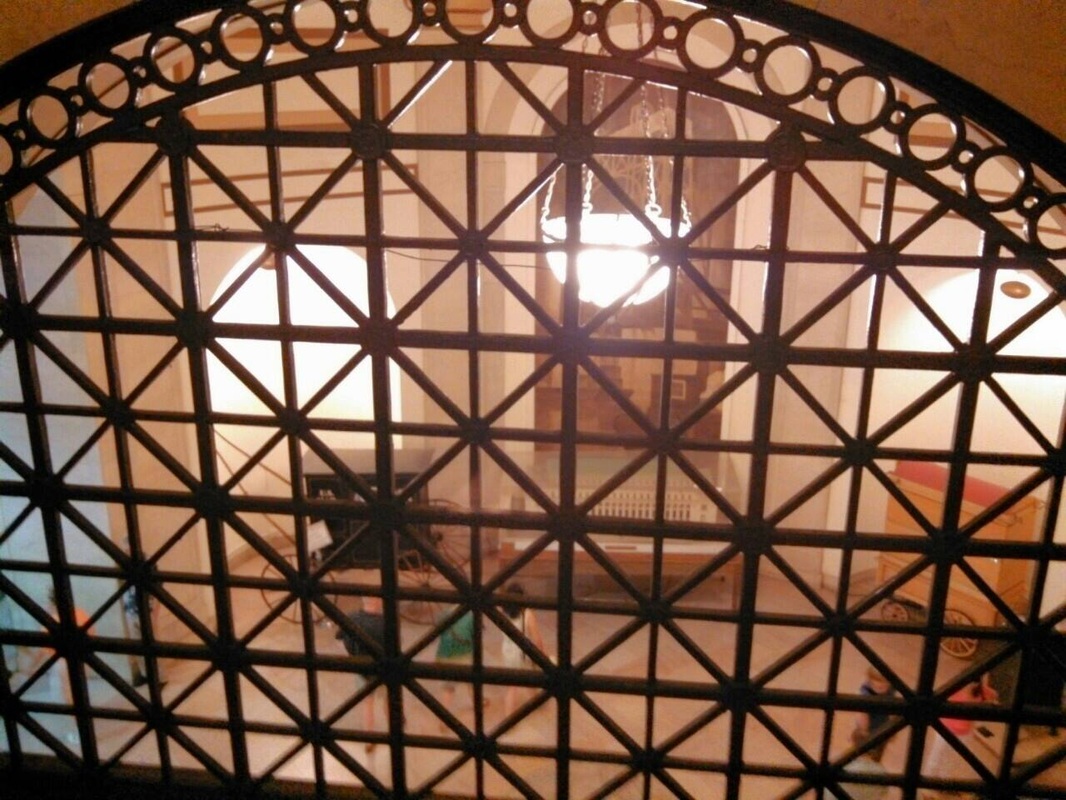

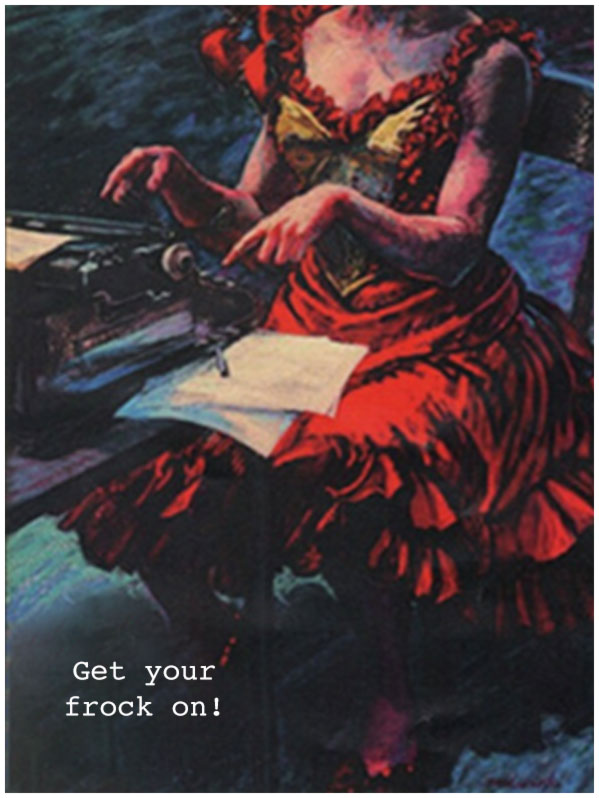
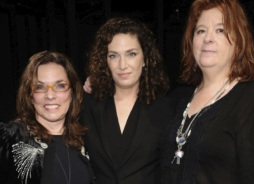
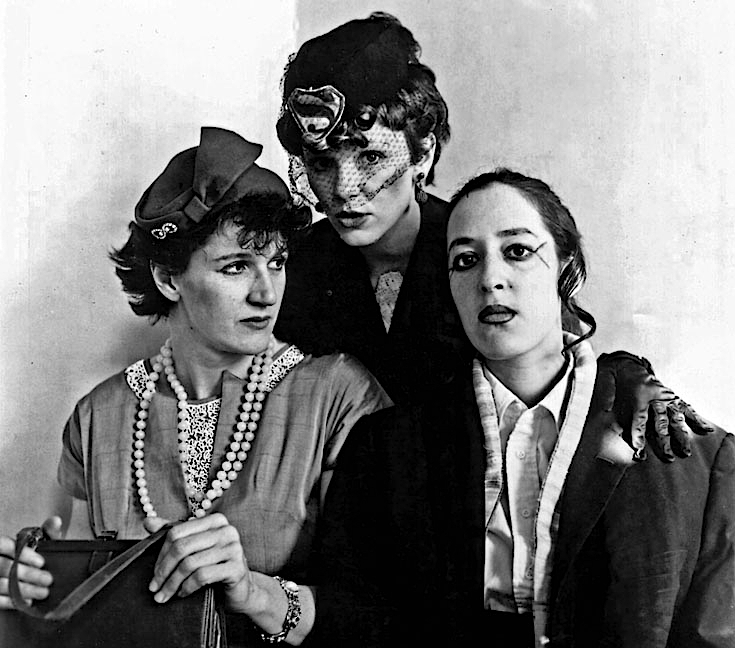
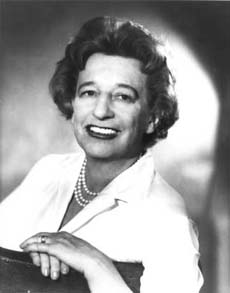
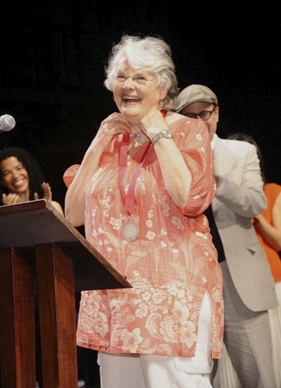
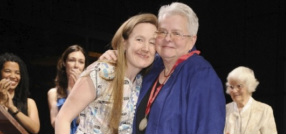
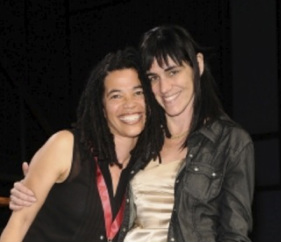
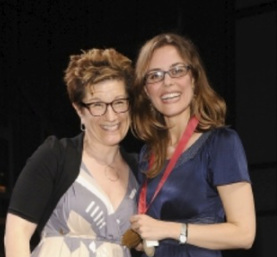
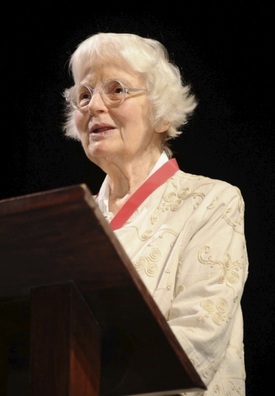
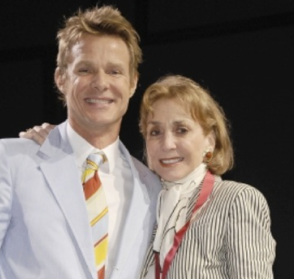
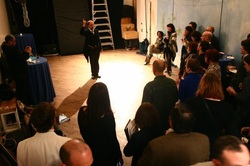
 RSS Feed
RSS Feed
